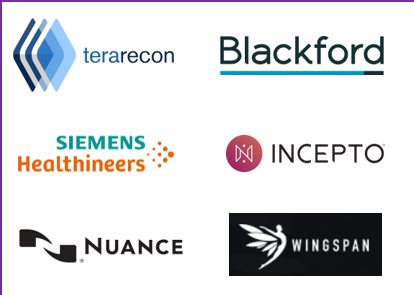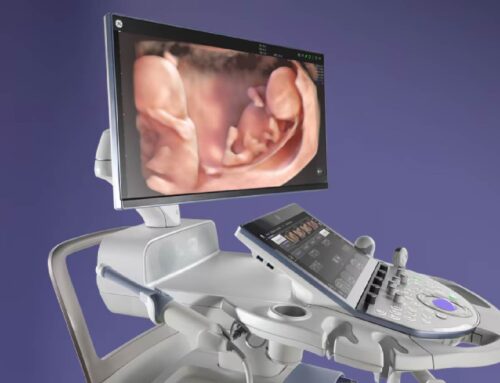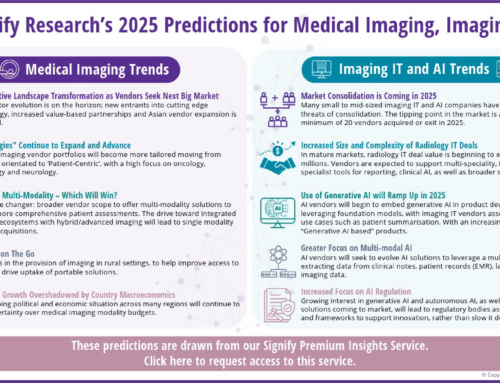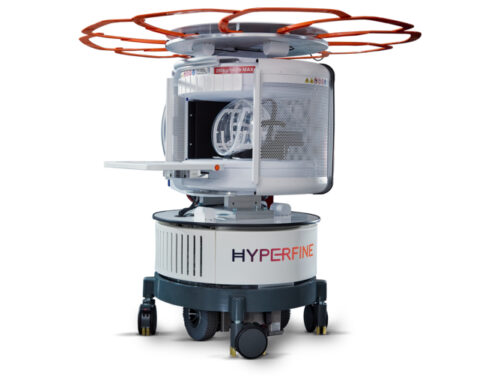Key Considerations for Healthcare Providers:
As the nascent market for AI in medical imaging develops, healthcare providers are faced with the question of how best to select, purchase and implement the rapidly expanding range of regulatory approved AI-enabled imaging applications and AI algorithms. Over 50 vendors have received regulatory clearance for medical imaging AI products and with over 200 algorithm developers active in the market, product availability will increase many-fold in the coming years. Purchasing algorithms direct from multiple vendors adds an administrative overhead, not to mention the technical challenges of integrating these algorithms in existing systems and clinical workflows. AI platforms and marketplaces, akin to mobile app-stores, offer a unified approach to deploying AI in medical imaging. A summary of the advantages and disadvantages for healthcare providers of AI marketplaces is provided below.
Table 1: The advantages and disadvantages for healthcare provider of AI marketplaces.
| Advantages | Disadvantages |
| Access to a wide selection of algorithms for multiple exam types | Limited number of vendors with marketplace offerings |
| Diversity of algorithms, e.g. clinical, operational and financial | Limited (but increasing) choice of algorithms (vendors) for specific use-cases |
| May offer single point of contracting and invoicing | Harder to control unauthorised (maverick) spending |
| Algorithms may be validated by the marketplace | Unfamiliarity with marketplace concept for medical imaging |
| Some marketplaces offer a common user interface to access AI results | May not have direct access to the algorithm developer |
The first marketplace/platform offerings entered the market in the last couple of years and several new ones are expected to be announced at RSNA 2019. The performance and functionality of these solutions varies between vendors, with some offering what is essentially an on-line application store, with little or no support for integration, and others offering end-to-end solutions that address many of the engineering (deployment, workflow integration, etc.) and commercial (contracting, billing, etc.) challenges associated with the distribution and implementation of AI. The following selection guide highlights some of the criteria that healthcare providers should consider when selecting a marketplace/platform vendor and compares six offerings from a selection of vendors from different parts of the world: Blackford Analysis (from the UK), Incepto (France), Nuance Healthcare (USA), Siemens Healthineers (Germany), TeraRecon (USA), and Wingspan (China).

This selection guide is an independent comparison of these six marketplaces/platforms based on verified contributions from each of the vendors. We anticipate this will be a useful resource for healthcare providers when determining whether to implement a marketplace offering, and then, which vendor to select.
AI marketplaces with the most partners and greatest number of applications and algorithms may, at first sight, appear the obvious to partner with. However, healthcare providers are advised to consider how these will be implemented in clinical practice and the level of contracting and technical support provided by the marketplace. The selection guide also covers a range of other criteria and functionalities that should be considered, and how today’s marketplaces perform against these criteria. For example, when considering workflow integration, providers are advised to consider how images are routed to the AI, how algorithms/applications are prioritised, how the radiologist engages with the AI results, and how the results are populated in the radiologist report. Other considerations include deployment options (cloud or on-premise) and tools for clinicians to develop their own AI solutions.
This is the first edition of the selection guide and Signify Research intends to release regular updates as new marketplaces/platforms come to market. The next release is scheduled for shortly after RSNA 2019.












